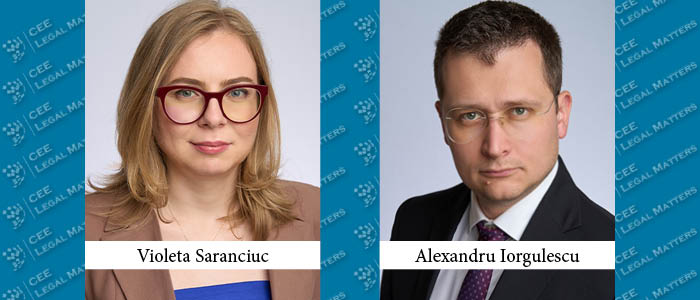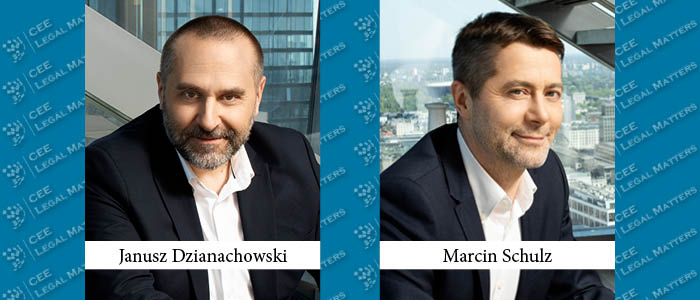Rob Irving is an M&A and private equity Partner and Co-Chair of Denton’s global Private Equity group. He has worked on landmark transactions throughout Central and Eastern Europe and South-Eastern Europe as well as Turkey since 1991. He started his legal career with White & Case, where he worked until May 2015, when, together with the entire White & Case Budapest office, he joined Dentons.
CEELM:
What first brought you to Hungary, and what convinced you to stay? Was it always your goal to work abroad?
R.I.: I originally joined White & Case in New York as a Summer Associate in 1989 with the express intention of being posted oversees. Nine months into my first year, White & Case asked me to move to Prague for two or three months as the first expatriate Associate to be posted in CEE. My first transaction was the final stages of the Volkswagen-Skoda joint venture, and from there I had the opportunity to work on many of the highest-profile Czech privatizations of the early 1990s. I returned to New York three and a half years later.
After two and a half years back in New York as a project finance lawyer, I yearned to return to CEE and convinced White & Case to send me to Budapest. My Partner, Istvan Reczicza, joined the office two weeks after I did, and we established a true partnership that carries through to today.
I’ve had numerous requests through the years to consider moving to Prague, Warsaw, London, or Istanbul, but my partnership with Istvan and loyalties to the team we’ve built up around us have kept me in Budapest.
Our office’s move to Dentons a year ago was a real energizer for all of us. Joining a firm that is investing and expanding significantly in the region and the world generally is really special and creates a lot of great opportunities for us and our clients. I now intend to stay in Budapest through to retirement, working with the team and Dentons generally, to create the premier law firm in the region.
CEELM:
Looking back, what were the most striking differences between your approach and that of local counsel in the country when you first arrived?
R.I.: Istvan and I have always wanted to have practices in the office that are cutting edge on a global level, rather than mostly acting as local counsel to London or New York law firms. We have tried to surround ourselves with lawyers who aspire to the same. Eventually, this led our clients to request that we start working for them across the region. We regularly work on some of the largest transactions and disputes in the region, typically opposite the London offices of the international law firms, which keeps us on the cutting edge of our practices.
CEELM:
You have a very regionally-oriented practice. Do you feel being based in Budapest is especially facilitative of this?
R.I.: I regularly work on transactions in jurisdictions from Poland down through the Balkans to Turkey, spending approximately 75% of weekdays on the road. Budapest is in the heart of this footprint. We have a Mercedes van and driver we’ve nicknamed our “mobile office,” in which we regularly travel to Vienna, Ljubljana, Zagreb, and Belgrade for meetings. The remainder of my regular destinations are reachable from the Budapest or Vienna airports in a one- or two-hour flight.
CEELM:
As an expat on the ground for a while now, what, if any, are the main stereotypes you find yourself arguing against when talking to people outside the country about Hungary?
R.I.: Actually, in recent years, I’ve found the region to be more and more open and integrated than previously. I find that the Hungarian members of my team are quickly accepted in other jurisdictions as true experts from whom people in those jurisdictions can learn. And after a few years where people in government and business in the region were asking what was going on with respect to the current Hungarian government, these days people in government in the region are often asking what they can learn from the measures taken in Hungary in recent years.
CEELM:
What particular value do you think a senior expatriate lawyer in your role adds – both to a firm and to its clients?
R.I.: My role is to provide the cutting edge expertise that one would typically get from hiring a senior lawyer in London or New York, combined with the benefits of more than 20 years of working in the region. I’m used to listening to people in this region and understanding what their concerns are, whether they are my clients or on the other side of the table. I also have seen an awful lot of diverse situations in the 16-odd CEE countries I’ve worked in, so I’m able to come up with solutions to address situations that might befuddle others.
CEELM:
If you were to relocate tomorrow in any other CEE jurisdiction, which one would it be and why?
R.I.: Honestly, when I’m traveling throughout CEE, I often think to myself that I could see myself living in the city which I’m visiting. A few weeks ago, I happened to get stuck in negotiations for a couple weeks in a city in Central Asia and came away thinking that while it was fine to visit I wouldn’t want to live there. This is a rare occurrence.
This Article was originally published in Issue 3.2. of the CEE Legal Matters Magazine. If you would like to receive a hard copy of the magazine, you can subscribe here.






























